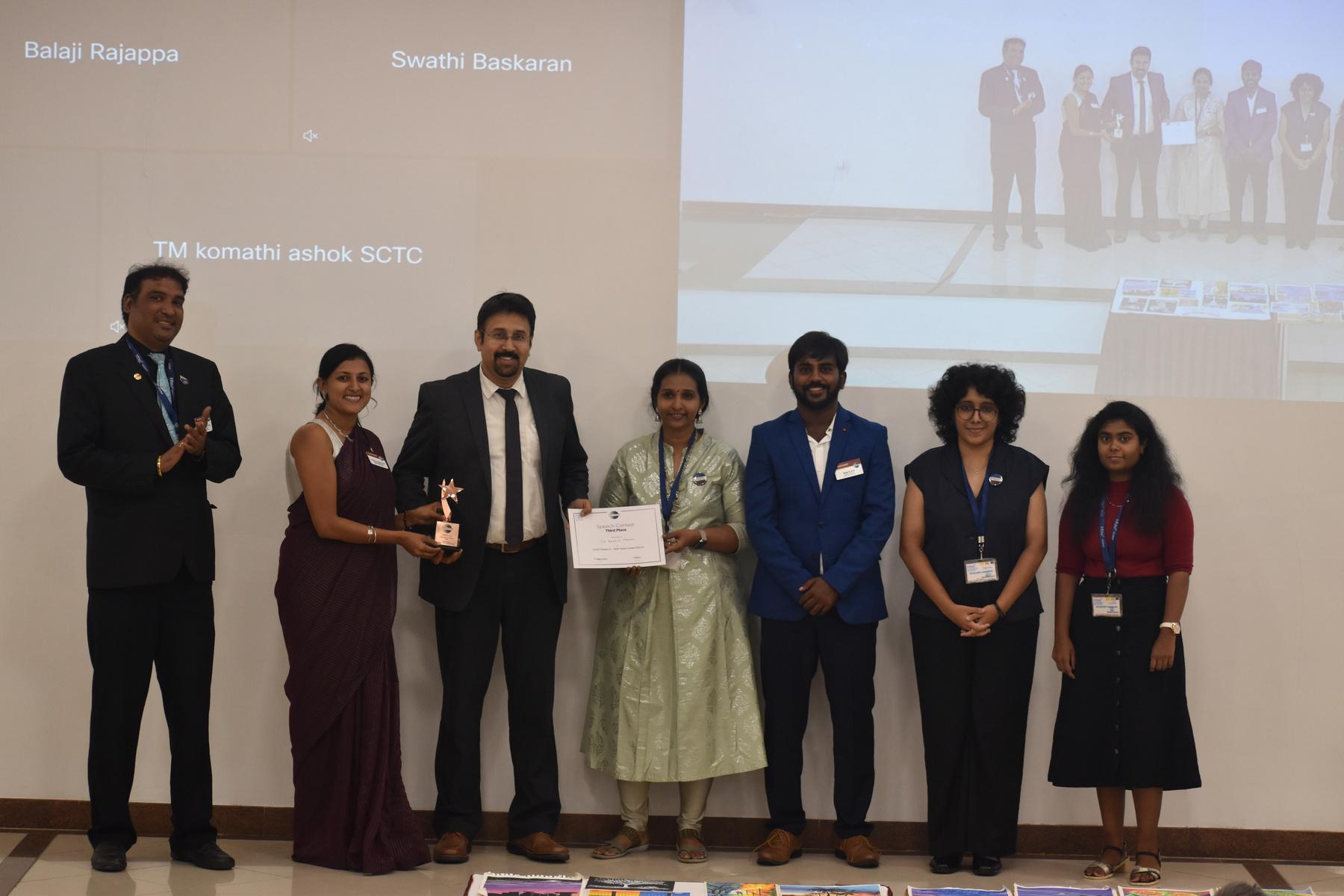
3 minute read
InterviewwithDTMSridharRanganathan
Tell us about how mentoring helped you- as a mentor andprotegee.
DTM Sridhar Ranganathan: I am a product of mentoring. When someone asked me for 5 things to become a champion speaker, I told I would not know what those 5 things are, but I have a mentor who knew what those 5 things are. My mentors are the most precious gifts I received in Toastmasters. When I first became a mentor I was overwhelmed, rather I went overboard. I remember pushing one of my first mentees very hard. She won the best speaker for her first speech. We both were so happy, but could not come up with another speech to her satisfaction. She ended up quitting Toastmasters. I realised mentoring is about just setting the right framework for the mentees to find the best way to express themselves.
Advertisement
Contest results can be tough on the contestants at times, howdoweseparatetheresultfromtheexperience?
DTM Sridhar Ranganathan: Even assuming that the results are unfair, it did not reflect my actual performance and what I deserved, I would always tell myself - If I cant overcome all the challenges like content, delivery, audience connect, audio issues, judging errors, contest time, speaking slot - then I don’t deserve to be a champion. So every tough result is a tough learning and helps me prepare for the next level
What's your suggestion for new members to experiment newideas?
DTM Sridhar Ranganathan: Be realistic in your expectations. We are not here to transform people with our words of wisdom. We are here to share our experiences and when we do it with utmost sincerety, we will find people relating themselves to those experiences and get connected. That, to me, is the biggest success we can achieve
MysteryoftheFillerWords:Don’t eliminatethem;Makethemserveapurpose
Filler words are an intrinsic part of spoken language. Every language in the world has its version of filler words and sounds - even sign language!
My overused filler words are 'you know' and 'ah'. Many of us term them disfluencies which have no place in fluent speech
Are they all disfluencies?
Filler words have often been defined as words that do not change the meaning of the sentence if eliminated- words that disturb the continuity of speech. Is this really true? Look closer, filler words can have their purpose too and have their pragmatic functions. These days, AI (Artificial Intelligence) systems are trying to understand the significance and place of filler words in human speech. Look at the illustration below. 'Ah' has been used here to indicate hesitance and reluctance Without the 'Ah', the conversation might have sounded rude. Used sparingly and correctly, filler words are called filled pauses, hesitation markers or planners When used unnecessarily, they can be called disfluencies, crutch words, repetitive words or verbal viruses.
Ah can be used to indicate politeness; huh can be interrogative and Hmm can indicate thoughtfulness
Good communication demands conciseness When we are narrating emotional stories or fascinating facts, filler words can act as disturbances breaking the flow and preventing the audience from hanging on to every word being said Filtering away the filler words while listening takes cognitive effort and hence these words could tune out our listeners
According to some studies, an average speaker uses 5 filler words per minute while it has been observed the optimum frequency should ideally be 1 filler word per minute I have often noticed filler words in my speech increasing in frequency when I am anxious, when I am not comfortable with my content or when I speed up my speech.

MysteryoftheFillerWords:Don’t eliminatethem;Makethemserveapurpose
The days I use them excessively are also days where I am not conscious of their appearance Now that we know we need to remove the unnecessary filler words or perform the um-ah-ectomy, the next question is- how to do it?
Methods one can adopt to reduce speech disfluencies:
Be aware and conscious of your favourite filler words. Awareness helps reduce the use.
Incorporate ways to reduce anxiety and remain calm by taking deep breaths before speaking and taking pauses to breathe in between Go slow to gather your thoughts if you feel you are speeding up Embrace the Pause to Eliminate the Fillers. Pause when inclined to utter a filler word. Use the pause to emphasize keywords and to breathe. Hand gestures can reduce filler words. Use them. Prepare for speeches in advance so that you are comfortable with their structure and flow Easy recall reduces filler words https://hbr.org/2018/08/how-to-stop-saying-um-ah-and-you-know https://www.sciencedirect.com/science/article/abs/pii/S0749596X85710327
As you attempt your next speech or even while you are part of a conversation, try the above methods. The aim is not to completely eliminate them but make them serve a purpose.

Deepa Sampath Kumar Speech Weavers Club Public speaking and communication coach





